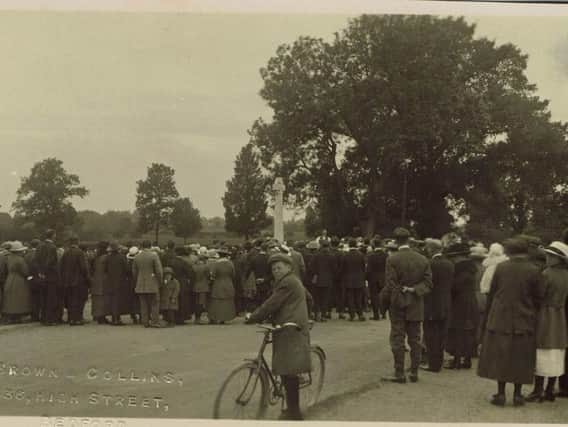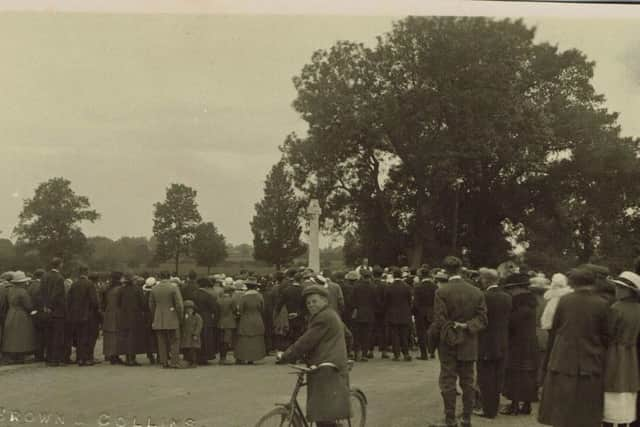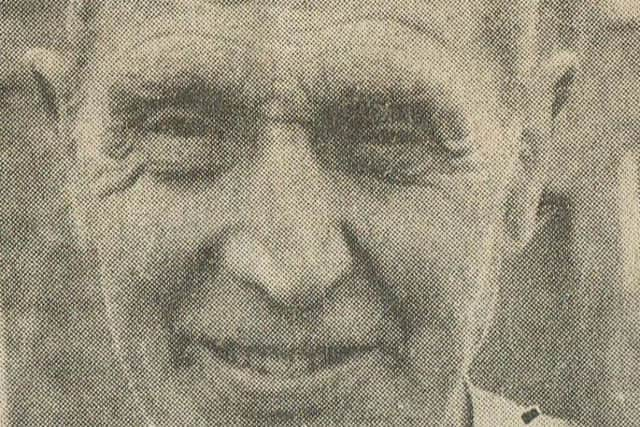Parish near Northampton marks WWI centenary with special Chron tribute to fallen soldiers


Hackleton Parish Council has been published 32 special obituary notices in the Chronicle & Echo over the last five years for every soldier from the parish who made the ultimate sacrifice.
Joanne Wilde, one of the people behind the project, said they wanted to celebrate the men who sacrificed everything for their country with more than just a name on a memorial.
Advertisement
Hide AdAdvertisement
Hide Ad"Most the men who died were young and died without anybody now to remember them as they died without any children or grandchildren or family connections," she said.


"What they did was so much, they gave their lives, and they should never be forgotten, but it's easy to do as I go past the war memorial every day and the names are a lot like wallpaper.
"But by doing the work and researching them, we brought them to life."
Hackleton Parish in 1914 included Piddington, Horton and Preston Deanery as well as Hackleton itself where the war memorial is situated.
Advertisement
Hide AdAdvertisement
Hide AdAs a result of Joanne and Elizabeth McHale's work, more stories from the few men who returned from the war have come to light too.


The only family of a fallen soldier that came forward was of Private Harry Batchelor who was killed in 1917, leaving a widow and three children.
They were able to tell a poignant story of how she had to manage without the family’s breadwinner, Joanne said, remaining a widow till her own death almost 50 years later.
But Bob Bennett came forward with a bunch of letters written by his ancestor, Private Frank Bennett, sent while on active service with the British Expeditionary Force in France and Belgium to his mother and brother from Horton.
Advertisement
Hide AdAdvertisement
Hide AdThe faded, century-old letters reveal an astonishing amount of detail of Frank’s time serving abroad from 1916 to July 1919.
Although he had only a basic education, Frank had excellent reading and writing skills and even learned some French, Flemish and Walloon, a romance language, while he was in active service.
“I don’t know a lot of French but sometimes I make them understand. They have some queer names for things… you would get your tongue-tied in a knot trying to say them, “ he wrote to his mother in one of the letters.
Like so many soldiers, the private was forced to stay for months after the Armistice was signed in November 1918, as they were not sure the war was over and to guard prisoners of war until peace was declared.
Advertisement
Hide AdAdvertisement
Hide AdIn fact, some may have stayed even longer as Frank’s last letter in the collection, dated July 21, 1919, tells his mother to expect him 'by the end of this week if all goes well'.
Frank returned to the villages where he was born and spent the rest of his life there, working for most of it in Salcey Forest as a woodman - similar to a ranger.
Joanne recalls: “In his later years, when Frank was going off to the forest to work, he would often make a hand-drawn map of the area where he was intending to work, and give that to my Mother or another of his neighbours, so that if he did not return, they would know where to start looking for him.”
Joanne remembers seeing him return from such expeditions, wheeling his bicycle often with a branch or log strapped from the handlebars to the saddle, to be used for firewood in his small cottage.
Advertisement
Hide AdAdvertisement
Hide AdBack home, he became very knowledgeable about local history and was always pleased to talk about flora and fauna, but not about his time in the trenches.
Frank never married and passed away in Piddington in 1977 at the age of 84.
Joanne feels proud about the work her and Elizabeth have done, with it also being included in a history book about Hackleton, to ensure the stories live on.
"It's been a rather positive experience and I think we were very pleased with the results, we feel like we've made something that's lasting" she said.